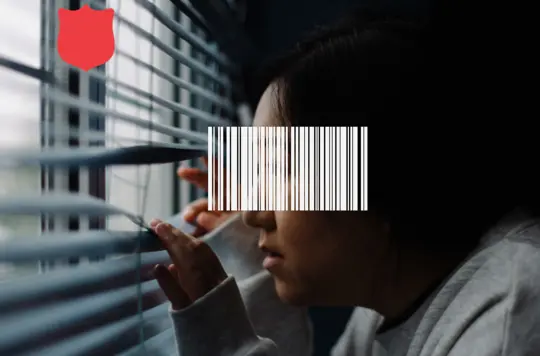First Responders
Identifying and referring victims.
Anyone who might be a victim of modern slavery is offered the chance to enter the National Referral Mechanism (NRM). The NRM is the system used in the UK to identify people who have experienced modern slavery and human trafficking, ensure they receive appropriate support and protection.

Referrals to the NRM can only be made by authorised agencies known as First Responders. First Responders are responsible for identifying potential victims, gathering information and referring them to the NRM or, in the case of adults, notifying the Home Office if someone does not consent to being referred. For someone under the age of 18, a referral to the NRM is done alongside child protection processes and Local Authorities provide care for them.
First Responders in the UK are the police force, the UK Border Force, Home Office Immigration and Visas, social services and certain Non-Governmental Organisations including The Salvation Army. As First Responders we will speak with people to take basic information and give them a chance to explain what has happened to them.
This information goes to the Single Competent Authority (SCA) – a Home Office department - which decides whether there are ‘reasonable grounds’ that this person is a victim of modern slavery. This gives the person the choice to receive support through the Government’s Modern Slavery Victim Care Contract (MSVCC).
This support is coordinated by The Salvation Army, who have run the contract since 2011, read about the support we provide to help survivors rebuild their lives.
First responders are often the first point of contact for survivors seeking help, right at the beginning of the journey to getting someone the support they need. They play a vital role in identifying and getting people to safety.

The Salvation Army provides a Volunteer First Responder Service which operates outside of the Modern Slavery Victim Care Contract and is funded by its charitable resources. We offer an internal support network to monitor and ensure wellbeing is maintained within the team who, by the nature of the role can be exposed to distressing information and people with extreme levels of trauma. This team receives regular support to meet the increasing demand placed on the service. They are highly trained to be able to identify and support people, many of whom will never have told anyone about what has happened to them before. If someone is destitute, they can be given somewhere safe to stay while waiting for their ‘reasonable grounds’ decision from the Home Office.
If it is decided that they are a potential victim, then they will be offered specialist support which may include safehouse accommodation, if needed.
While they are receiving this intensive support, called a period of ‘recovery and reflection’, the Home Office gathers further information and more detail about each person’s experience of exploitation to determine whether there are ‘conclusive grounds’ that they are a victim of modern slavery. This means they continue to receive more light touch support into the future, called ‘Reach-In’ as they build resilience and independence.

How Can You Help?
- Spot the signs of modern slavery where you are.
- Contact our confidential referral helpline 0800 808 3733, available 24 hours a day, seven days a week, if you suspect that you or someone you come across is a potential victim of modern slavery in need of help.
- Volunteer to help survivors get the help they need.
- Support our latest campaigns

Modern slavery
We have been combatting slavery and supporting survivors of this horrendous crime since our earliest days, but what is modern slavery and how can we spot the signs in our own community?

How we support survivors
Find out how we support survivors of Modern slavery through our Government contract and a wide range of specialist services.

Spot the signs
Learn the tell-tale signs of modern slavery, and where to get help for victims.

Am I Safe Now
Join the fight to end modern slavery. Learn how to spot the signs and what to if you see something.